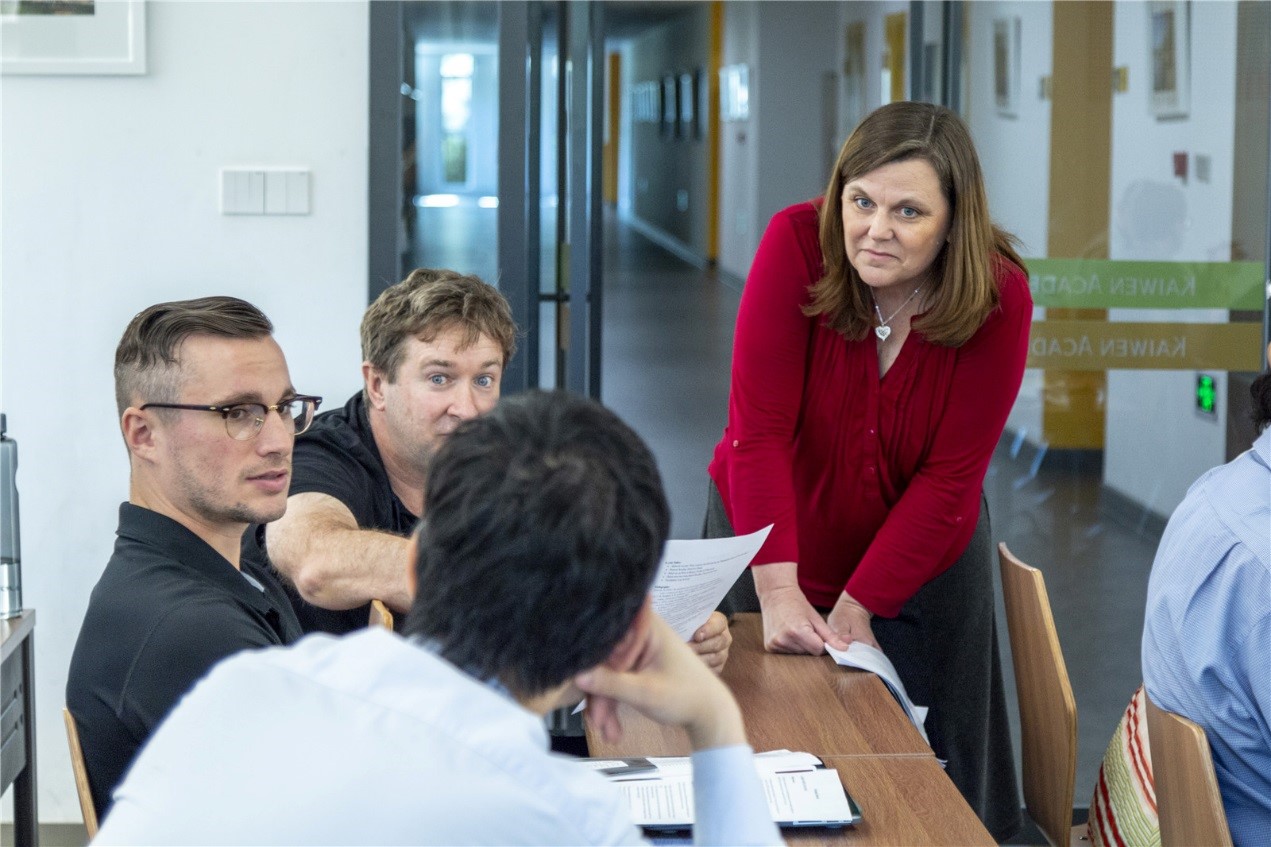
“University courses in North America involve a lot of complex academic content. Helping students pass the language test is only the first step. When teaching English as a second language (ESL), we must vigorously develop students’ academic language skills. This will be really beneficial to them,” said Ms. Andrea Dallas.
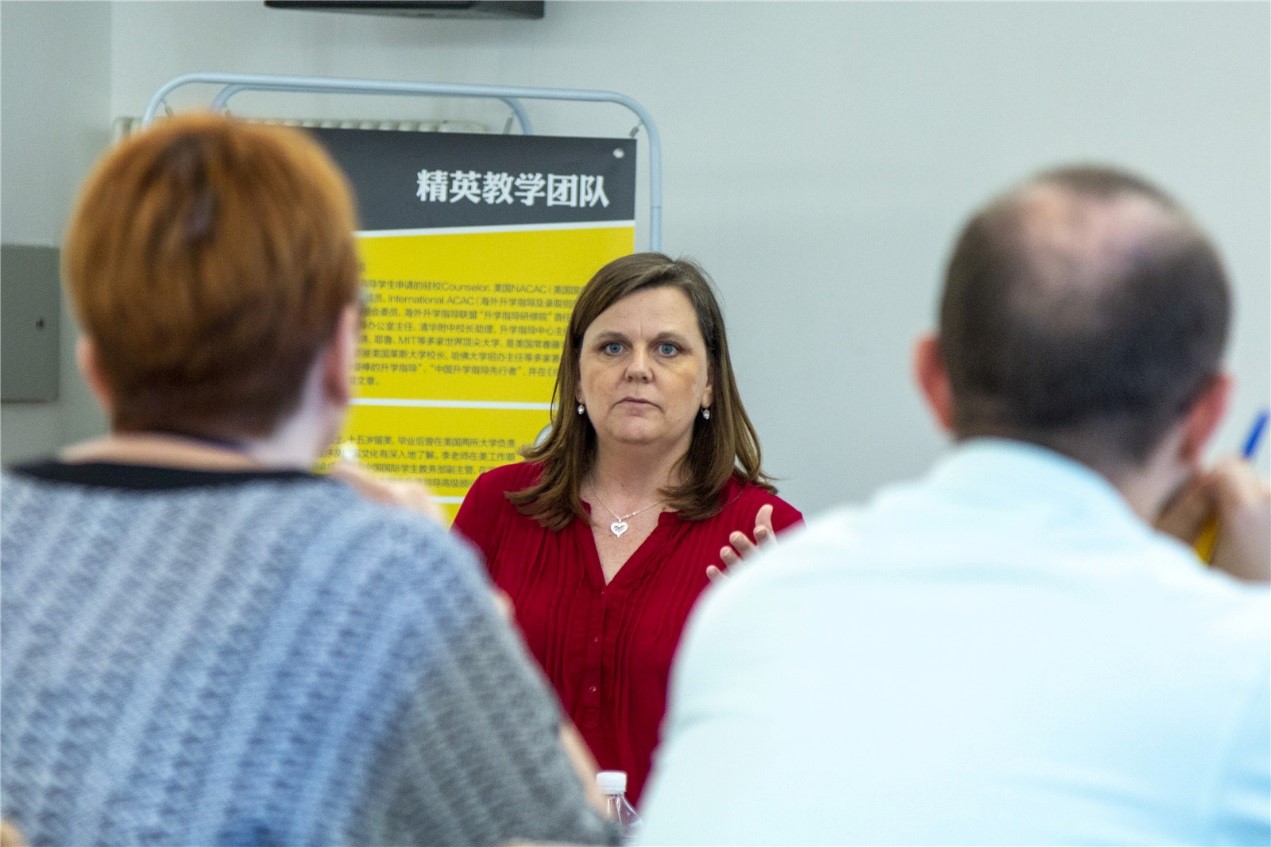
ESL courses are professional English courses for language learners whose native language is not English and who use English as a second language. At KWA, students take ESL courses from the very first grade and all ESL teachers are from English-speaking countries.
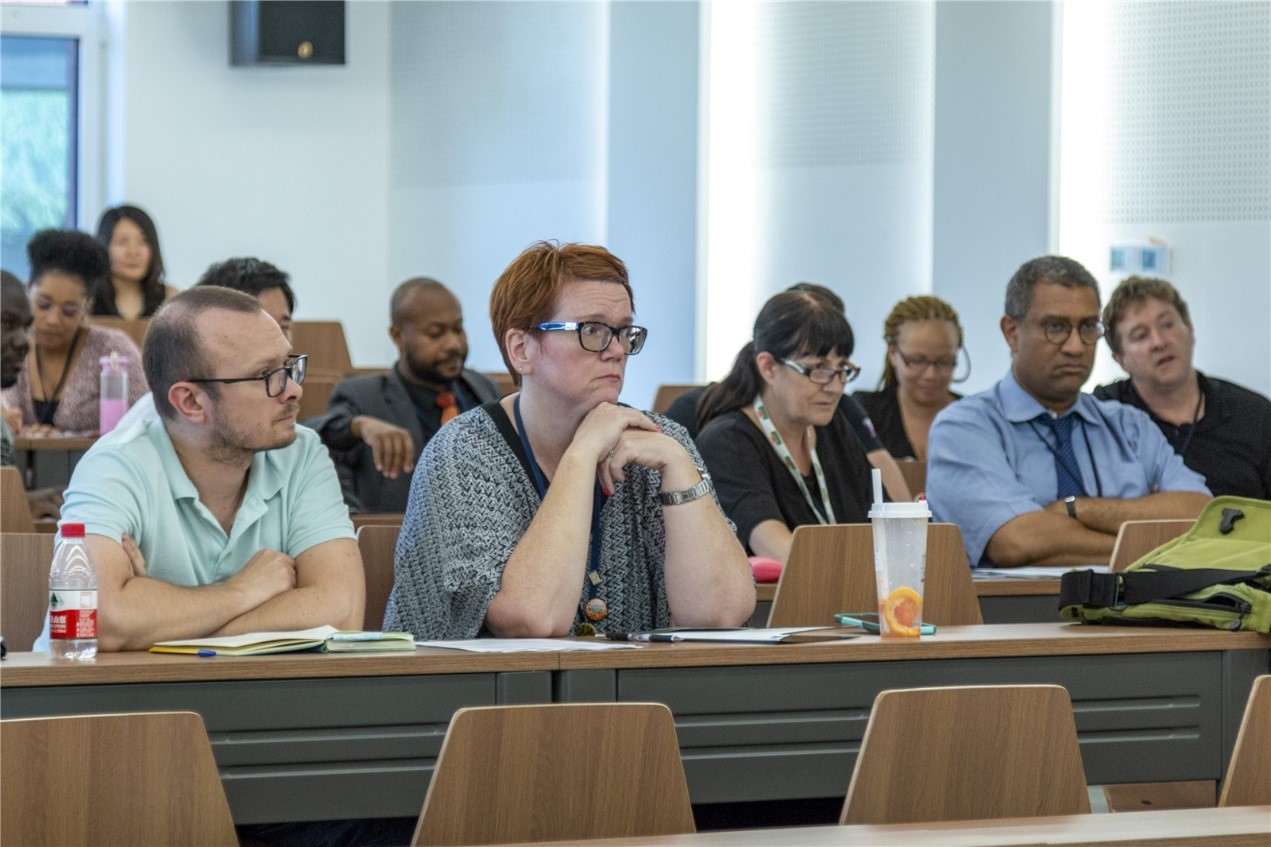
To improve these teachers’ professional skills and teaching levels, Principal Wang Shi invited Andrea Dallas, the ESL program leader at the University of Massachusetts Amherst, to give a training class to KWA ESL teachers on May 29.
Ms. Dallas explained, “In my past research and teaching experience, I have often found that many international students who have excelled in ESL exams still face difficulties in the academic environment of a university because of the language barrier. These students may be required to read dozens of pages of documents and write several essays in one or two days, but their slow reading speed and poor understanding prevent them from finishing the assignments before the deadline. This may lead to poor grades and other problems in the long run.”
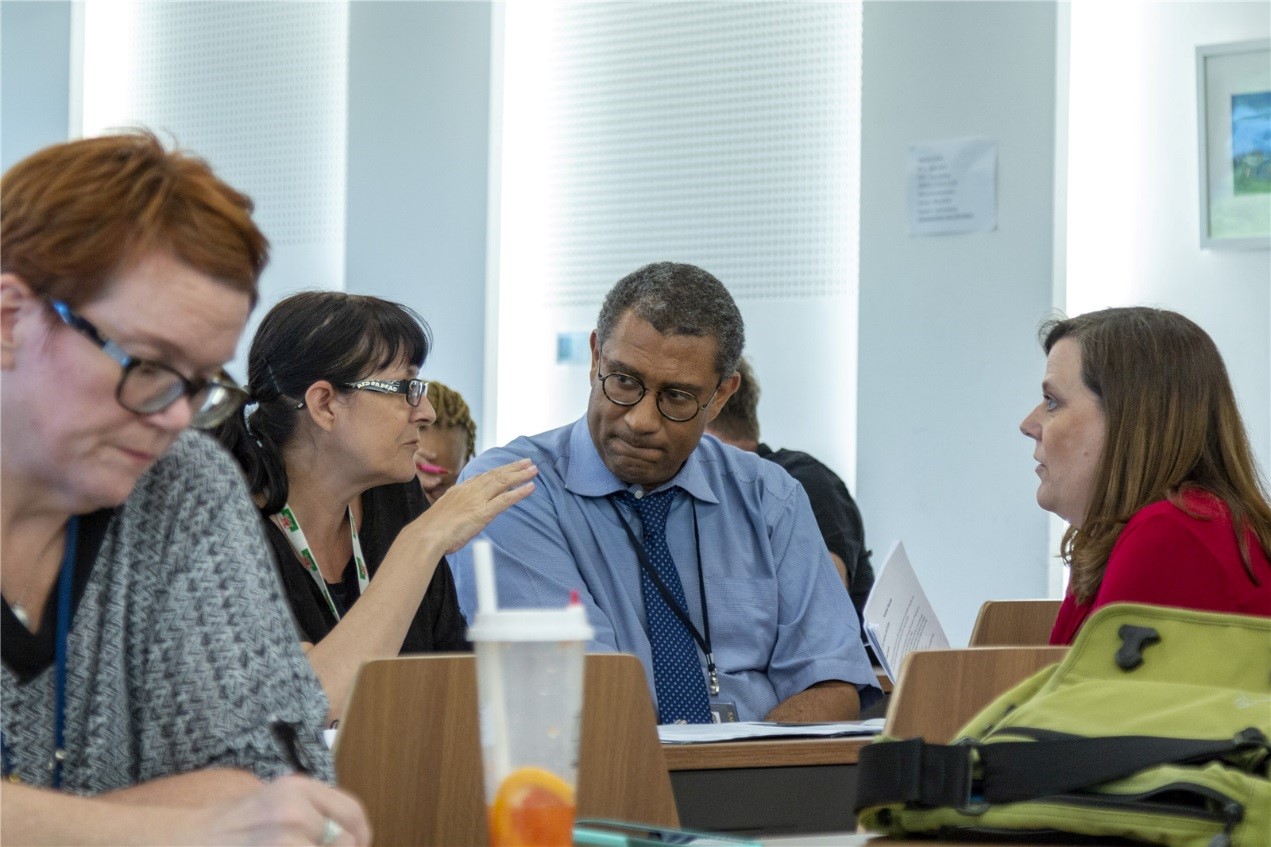
“University professors speak with different accents and speeds. They will not tailor curriculum content for international students, nor will they pay extra attention to international students’ language abilities. Although some students have been studying at a bilingual international school, most of their classmates and friends are from the same region or country. However, when they enter a university, they will face students from all over the world. Different accents and intonations of these students will cause inconvenience in communication,” English teachers Jennifer Roy and Mark Hanson also expressed their views.
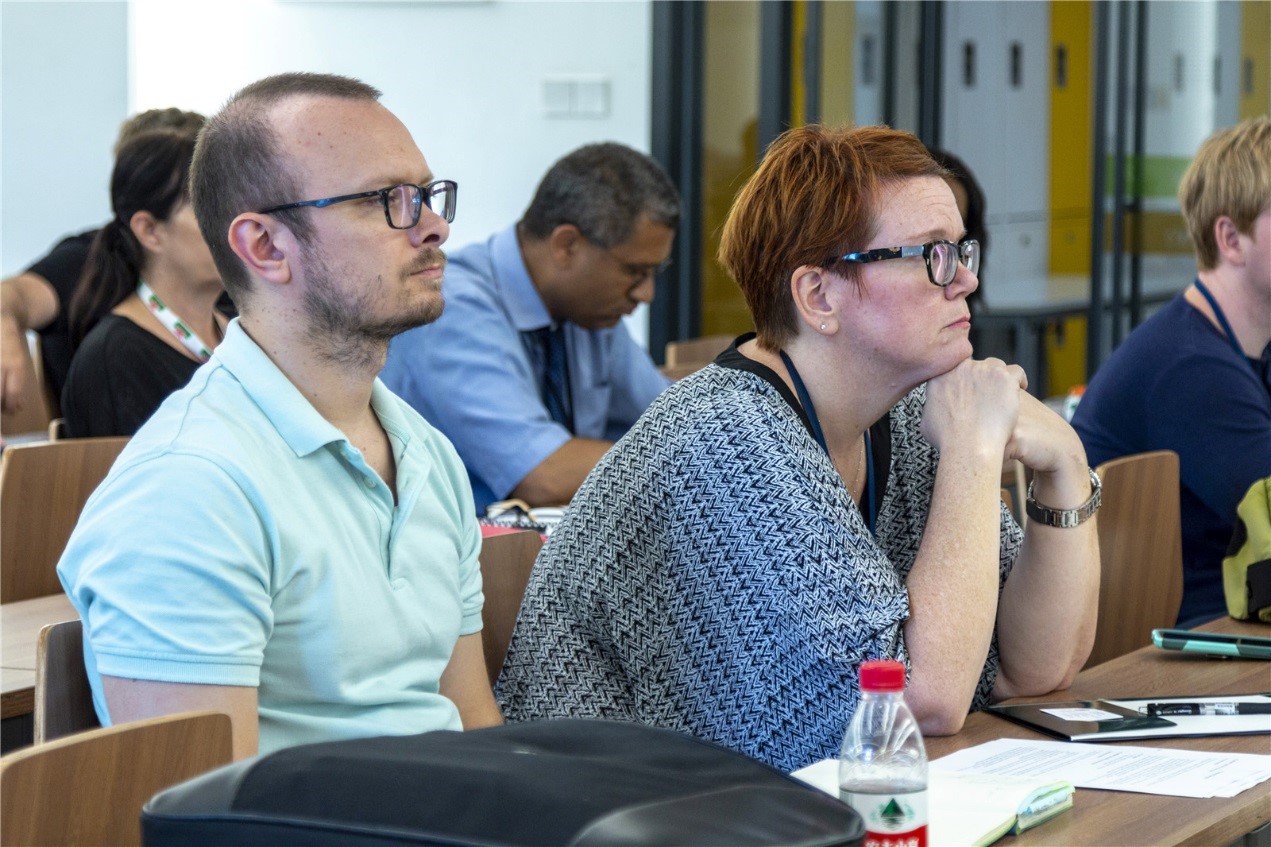
At the training class, Ms. Dallas focused on ways to improve students’ academic reading ability.
First, students should use close reading (intensive reading or deep reading) to improve their reading quality. When reading an article, students must fully understand the content and the author’s intentions, learn new knowledge points and words, integrate various subjects, and broaden the scope of their knowledge.
Second, teachers should help students increase their academic vocabulary. Lexile levels can be used to measure a student’s vocabulary and reading ability.
Finally, on the basis of intensive reading, students must learn to summarize, skip, split, and integrate information, which will help improve their reading speed.
After the training ended, Ms. Dallas shared with the teachers a large number of online learning resources and books on language teaching and learning.

KWA’s ESL courses place emphasis on academic ESL content and are complementary to the school’s everyday English courses. In the form of group discussions, Q&A sessions, and speeches, KWA teachers encourage students to freely express themselves and interact more with teachers and classmates, so that the students can improve their English and academic language skills and can adapt to Western culture and the teaching methods of foreign universities better and faster.
